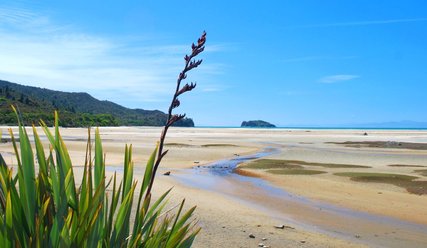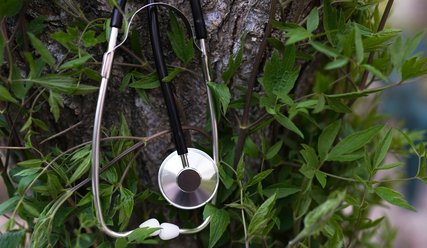GPs are on the frontline of climate change
As our newsfeeds are filled with the dramatic and horrifying images of Australian homes and bush being consumed by ferocious flames, GP Robin Barraclough is taken back to the first time the impact of climate change really hit him.
"I was working in the emergency department of Hobart Hospital (in Tasmania) in January 2013 when the state was experiencing the worst heatwave on record, with temperatures of 41.8 degrees being reported," he says.
"Victims from the devastating Dunally Bushfire began to arrive suffering from smoke inhalation and other injuries and the warnings about climate change I had heard suddenly became very real.
"It was terrifying."
Robin has also spent time working in the communities of Haast, Fox Glacier, Franz Josef Glacier, Whataroa and Harihari - all close to the South Island glaciers which are melting at an alarming rate.
"Seeing for yourself what is happening to the environment in these areas is very sobering. When you also take into consideration the effect the climate emergency is already having on people's lives, their livelihoods and their homes, it’s a huge and incredibly complex issue.
But transforming society into one that emits zero-carbon worldwide is the greatest challenge that humanity will ever face.”
One of the barriers stopping people from accepting the threat that climate change presents is their difficulty in understanding the scientific principles behind the causes of global warming. But as a former science teacher, Robin has seen an opportunity to use his skills to explain what can be complicated information in a way that brings home the stark future the world is facing.
"In a way I fell into medicine because I’d achieved everything I wanted to as a teacher," Robin laughs. "The only place left for me to go was up into management, which didn't thrill me at all.
"So I applied to do a graduate entry medicine degree and after passing the entrance exam and interview stages, I got home to find a message on my answer machine from Nottingham University offering me a place.
"Once I got over the shock that the offer was real, I thought 'if I don't do it, I will regret it' and I haven't looked back since!"
He has been working as a GP and rural hospital doctor in New Zealand since 2013, currently locuming at Kaitaia Hospital in the Far North, and enjoys the challenges working for isolated communities brings him.
Being a locum also gives him time to pursue his climate change advocacy work - something he says isn't just a passion but a driving force in his life.
“It’s clear looking at the recent events over in Australia, and with flooding here in New Zealand, that many rural communities are on the front line of not just a climate emergency, but a healthcare one too,” he says . “The stress levels among farmers and those working in the tourism sector are alarmingly high, and aren’t going to improve anytime soon. As rural GPs are at the heart of communities, they are also on the front line of climate change.”
“One of the biggest challenges is that our entire way of life is built around consuming stuff," he explains. “For example, the best selling toy last Christmas was Lego’s Disney Frozen II Arendelle Castle village, made of 521 separate bits of plastic. Being able to recycle plastic isn’t really the issue, the root of the problem is that we are consuming so much of the stuff in the first place.
"We need people to stand up and do something, and I feel like if I don't, who will? I want to be able to look future generations in the eye when they ask me what I was doing when the tipping points started to happen."
But despite the enormity of the task, Robin is upbeat and positive about what the future holds.
"While the extent of change that society needs to go through is terrifying and bewildering, it is also exhilarating when you think of how much better off we will all be. Society will be more collaborative and sustainable, the concept of wellbeing will become the measure of success rather than the dollar figures on the bottom line," he says.
"It's going to be hard, of course, but ultimately the challenge will be worth it."
He also believes in the impact that many small actions can have.
"The best thing that individuals can do, that GPs can do, is recognise that they are part of the problem and make changes in their own lives, in their communities and in their workplaces that start to address the problem.
Be mindful of what you do. Choose to consume less ‘stuff’ – buy items that will last a long time. Consider local holidays. Visit local farmer markets to buy your food. Find alternatives to fossil fuels to power your homes and your vehicles. Make lifestyle choices that support the change we need. We are all on this journey for better or worse. Let's be the change we need to see in the world.”


